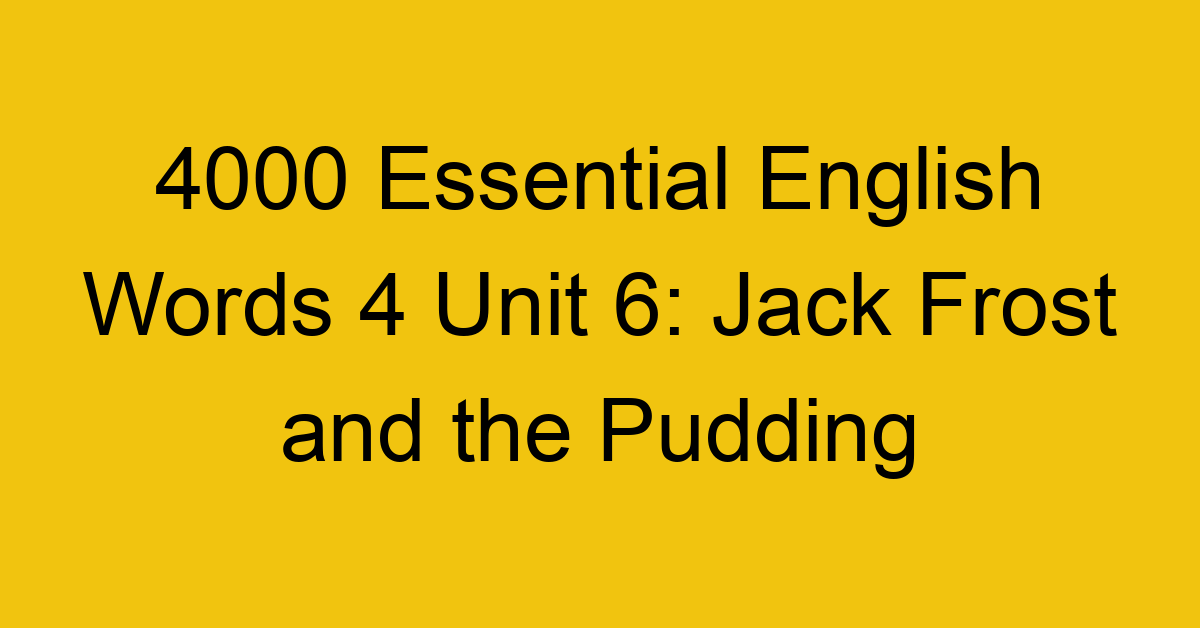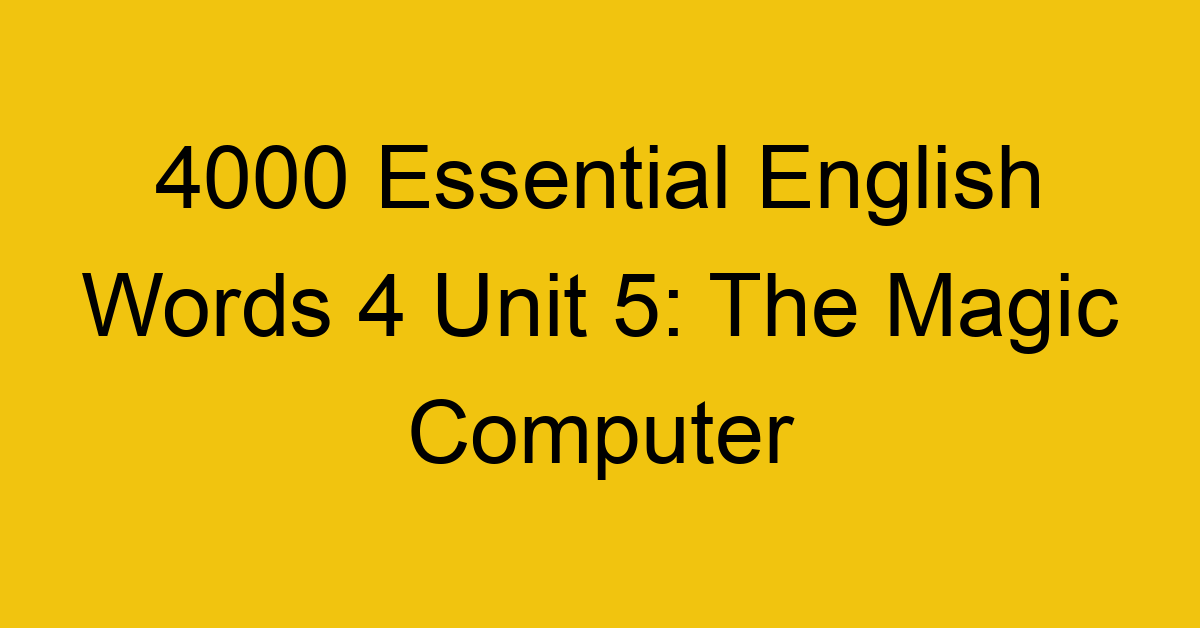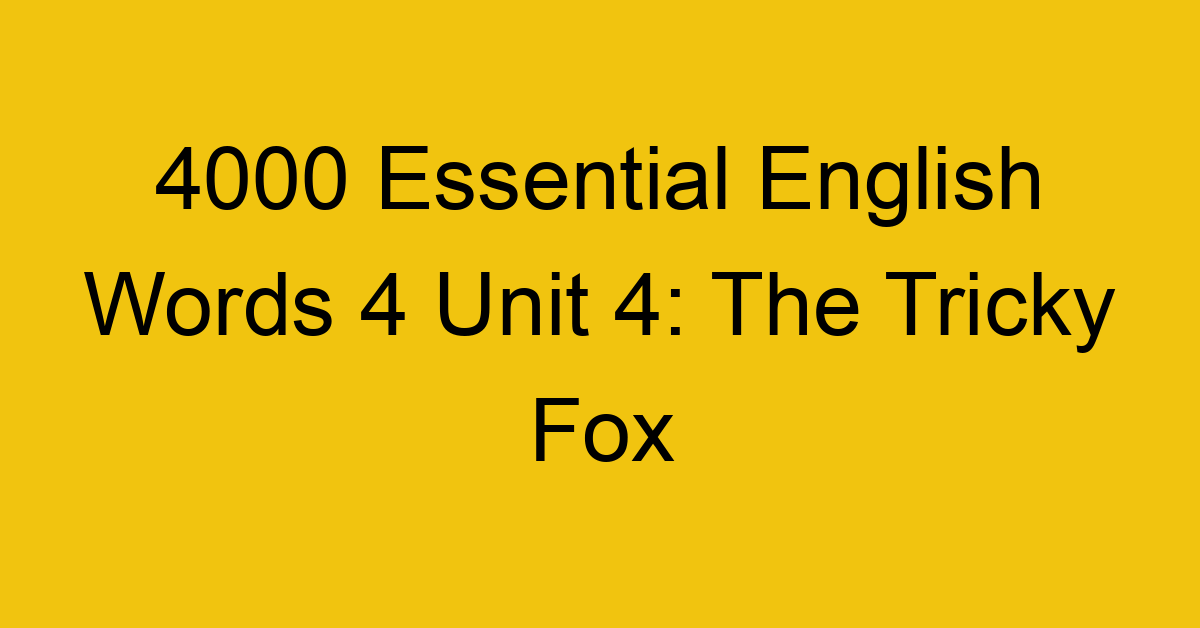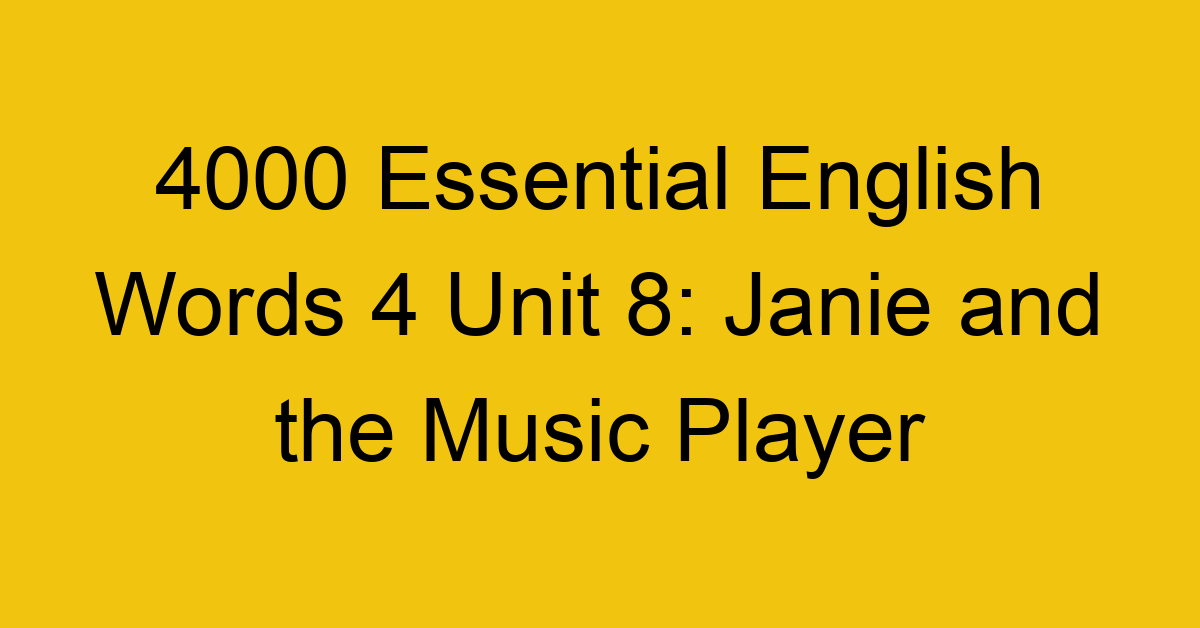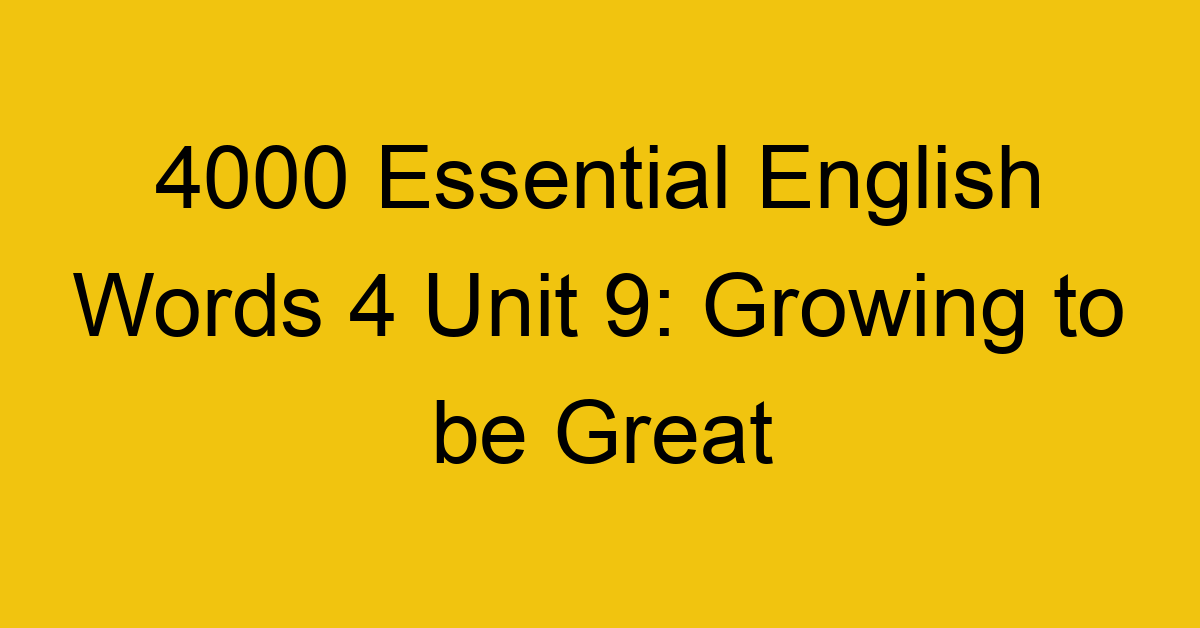4000 Essential English Words 4 Unit 7: The Architect’s Plan
Word List
- account [əˈkaunt] n.
An account with a bank is an arrangement to keep one’s money there.
→ After I paid for the new car, my bank account was nearly empty.
- architect [ˈɑːrkɪtekt] n.
An architect is a person who designs buildings.
→ The plans for building the new home were drawn by a famous architect.
- conceal [kənˈsiːl] v.
To conceal something means to hide it.
→ You should conceal your money so no one can take it from you.
- crime [kraɪm] n.
A crime is something bad that a person does that can be punished by law.
→ Police quickly arrived at the scene of the crime.
- deed [diːd] n.
A deed is a certificate that proves that someone owns something.
→ When she bought the car, she was given a deed to show the car was hers.
- gratitude [ˈgrӕtətjuːd] n.
Gratitude is a feeling of being thankful.
→ The kids showed Aunt Tess much gratitude for visiting them.
- habitat [ˈhӕbətӕt] n.
A habitat is the natural home of animals or plants.
→ Frogs are often found in a wet habitat, such as near a lake, river, or pond.
- intervene [intərviːn] v.
To intervene means to help stop a problem between two people or groups.
→ The students argued until the teacher intervened.
- landmark [ˈlændmɑːrk] n.
A landmark is an object that helps people find or remember a location.
→ The tall tree was used as a landmark for people to find the road to the inn.
- legal [ˈliːgəl] adj.
If something is legal, it is related to the law or allowed by the law.
→ It was not legal for him to drive until he was eighteen years old.
- memorable [ˈmemərəbəl] adj.
If something is memorable, then it is remembered for a special reason.
→ The party was memorable; people were still talking about it years later.
- oblige [əˈblaɪdʒ] v.
To oblige someone means to require them to do something.
→ If I wanted to have playtime, I was obliged to clean my room once a week.
- offense [əˈfens] n.
An offense is an action that breaks the law and requires punishment.
→ He was put in jail for two days for the offense.
- proclaim [prouˈkleim] v.
To proclaim something means to say it in public.
→ The army general proclaimed that the war was won.
- rally [ˈrӕli] n.
A rally is a large public meeting in order to support something.
→ The school had a rally in the gym to support the basketball team.
- resolve [rɪˈzɒlv] v.
To resolve something means to find a solution.
→ She resolved the problem with her children by giving them both a toy.
- resource [rɪˈsɔːrs] n.
Resources are a person or country’s money and materials that they can use.
→ The poor man didn’t have the resources to feed himself.
- sentence [ˈsentəns] n.
A sentence is punishment given to someone who didn’t follow the law.
→ The sentence for stealing a car is much worse than for stealing candy.
- volunteer [volənˈtiər] v.
To volunteer means to offer to do something for free.
→ Many people volunteered to help the adults learn to read.
- witness [ˈwitnis] n.
A witness is someone who sees or hears a crime or accident happen.
→ The woman was the only witness of the horrible crime.
